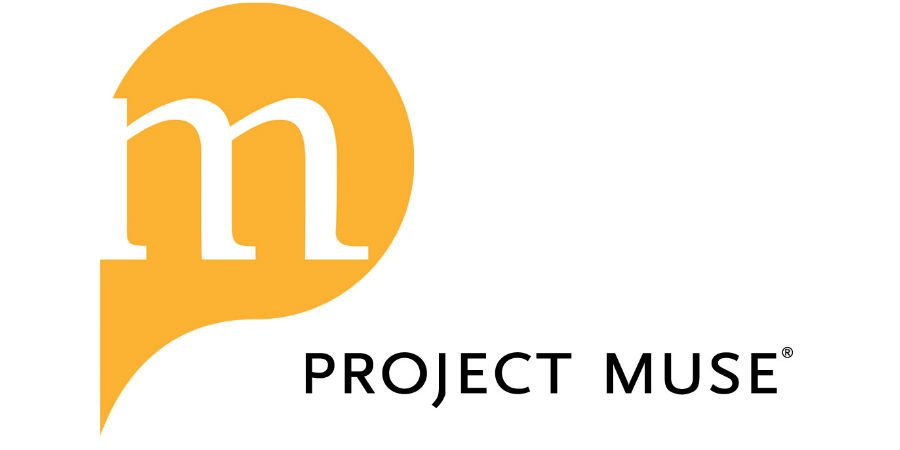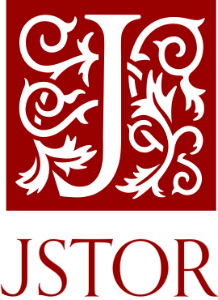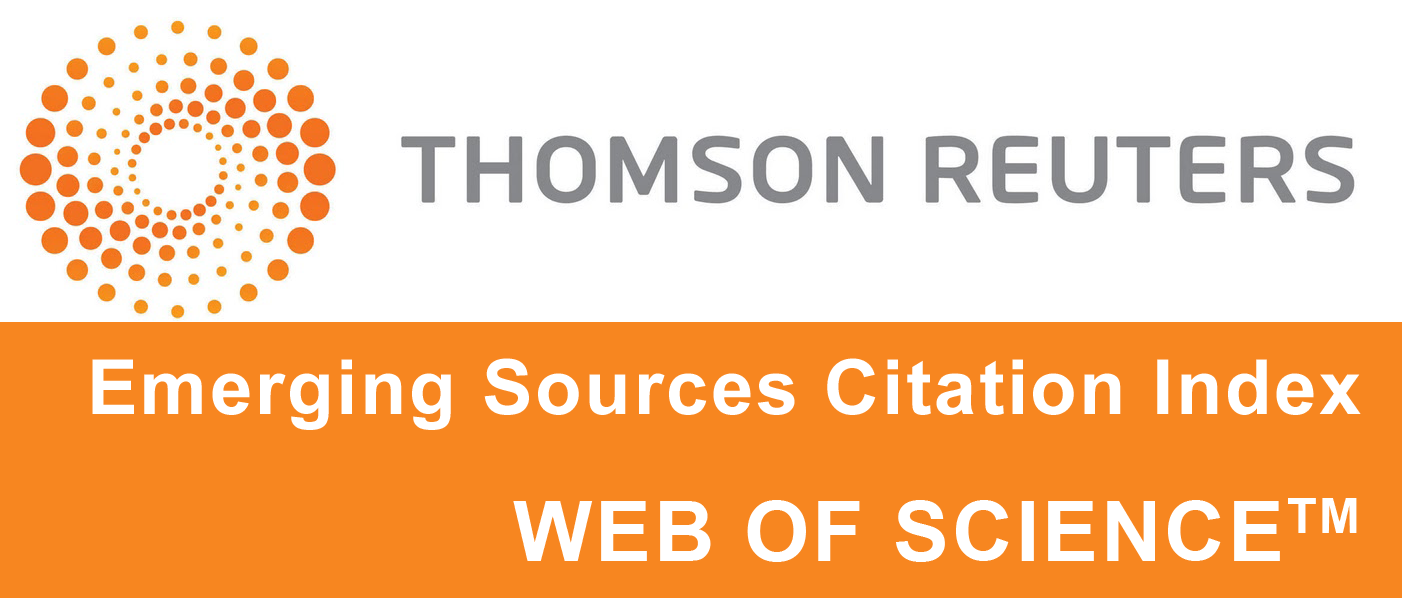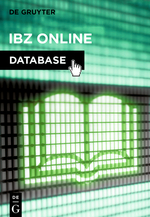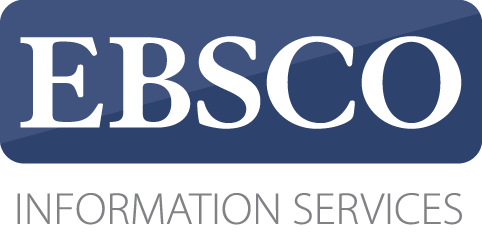- » Section Policies
- » Archiving
- » Editorial Team
- » Editorial Board
- » Editorial Advisory Board
- » Abstracting and Indexing
- » Editorial Policy and Publication Ethics
- » Notes for Writers of Review Essays
- » PSHEV Style Guide
- » PSHEV Book Review Guidelines 2019
- » Open Access to issues from 1953 to 2006
Section Policies
Abbreviation
Articles
Articles
A Critical Introduction
A Prologue
Bibliography
Book Notes
Book Received
Books Received
Book Review
Book Reviews
Book Reviews and Notes
Books Reviewed
Call for Papers
Comment
Commentary
Comments
Contemporary Studies
Contents
Contributors
Contributors and Reviewers
Correspondence
Creative Non-Fiction
Document
Documentary Sources
Editorial
Editorial and Consultant
Editors' Conclusion
Editor's Introduction
Editor's Preface
Fiction
Foreword
Forum
Guest Editors' Introduction
Historical Preface
Historical Studies
Index
Interview
Introduction
In Memoriam
Notes and Comment
Notes and Comments
Notes and Documents
Obituary
On Bernard Lonergan
On Karl Rahner
On The Constitution on the Church
Photo Gallery
Play
Poems
Poetry
Professorial Address
Prose
Reminiscences
Research Note
Research Notes
Reviewers
Review Article
Review Articles
Review Essay
San Jose Seminary
Shorter Notices
Short Stories
Survey Article
Special Article
Special Report
Special Reports
Stories
Survey
Surveys
Symposium
Text and Documents
Articles and Research Notes
Obituaries
Texts and Comments
Texts and Documents
Translation
Commentaries
Archiving
This journal utilizes the LOCKSS system to create a distributed archiving system among participating libraries and permits those libraries to create permanent archives of the journal for purposes of preservation and restoration. More...
Editorial Team
Editor
MICHAEL D. PANTE, PhD
Ateneo de Manila University, Philippines
Associate Editor
MARK ALEXANDER C. DIZON, PhD
Ateneo de Manila University, Philippines
Journal Office Manager and Manuscript Editor
SARAH JESSICA E. WONG
Ateneo de Manila University, Philippines
Editorial Assistant
MARIZ ELAINE S. SISON
Ateneo de Manila University, Philippines
Editorial Assistant
ALVIN D. CABALQUINTO
Ateneo de Manila University, Philippines
Cover and Book Designer
KARL FREDRICK M. CASTRO
Ateneo de Manila University, Philippines
Editorial Board
- Warwick H. Anderson, University of Sydney, Australia
- Caroline Sy Hau, University of Kyoto, Japan
- Resil Mojares, University of San Carlos, emeritus professor, Philippines
- Rhacel S. Parreñas, Princeton University, USA
- Vicente L. Rafael, University of Washington, USA
- Rosanne Rutten, University of Amsterdam, The Netherlands
Editorial Advisory Board
- Patricio N. Abinales, Univrsity of Hawai`i-Manoa, USA
- Bao Maohong, Peking University, People’s Republic of China
- William Clarence-Smith, University of London, United Kingdom
- Daniel Doeppers, University of Wisconsin-Madison, emeritus professor, USA
- James Eder, Arizona State University, USA
- Ma. Dolores Elizalde, Consejo Superior de Investigaciones Científicas, Spain
- Yến Lê Espiritu, University of California San Diego, USA
- Xavier Huetz de Lemps, University of Nice Sophia Antipolis, France
- Reynaldo C. Ileto, Australian National University, emeritus faculty, Australia
- Laura L. Junker, University of Illinois at Chicago, USA
- Benedict Kerkvliet, Australian National University, emeritus professor, Australia
- Alfred W. McCoy, University of Wisconsin-Madison, USA
- Yoshiko Nagano, Kanagawa University, emeritus, Japan
- Michael Pinches, independent scholar
- James Scott, Yale University, USA
- James F. Warren, Murdoch University, emeritus professor, Australia
- Peter Xenos, Chulalongkorn University, Thailand
Abstracting and Indexing
Articles in Philippine Studies: Historical and Ethnographic Viewpoints are indexed and/or abstracted in Scopus Journal Citation Index (Elsevier), Emerging Sources Citation Index (Clarivate), ASEAN Citation Index, Historical Abstracts (EBSCO), Bibliography of Asian Studies (EBSCO), International Bibliography of the Social Sciences (ProQuest), and the Internationale Bibliographie der geistes-und sozialwissenschaftlichen Zeitschriftenliteratur [International Bibliography of Periodical Literature in the Humanities and Social Sciences] (IBZ) and the Internationale Bibliographie der Rezensionen geistes- und sozialwissenschaftlicher Literatur[International Bibliography of Book Reviews of Scholarly Literature in the Humanities and Social Sciences] (IBR) (DeGruyter). The journal is included in the bibliographic databases of JSTOR, Project MUSE, EBSCO Host, Informit e-Library, and World Affairs Online.
Editorial Policy and Publication Ethics
Editorial Policy and Publication Ethics
Philippine Studies: Historical and Ethnographic Viewpoints takes compliance with publication ethics from all participants in the publishing process seriously.
Only manuscripts that are original works, free of plagiarism even of the author’s own works, and are not under consideration for any other publication should be submitted for consideration. Once a manuscript has been submitted to this journal, it cannot be submitted to other publication outlets, except when peer review results in the inability of this journal to accept the work for publication.
The editors reserve the right to accept or reject any material submitted to it for consideration.
The journal does not charge any fees for processing or publishing a work, the exception being, as stipulated below, when a manuscript that is already undergoing copyediting is withdrawn by the author.
Works that appear in Philippine Studies: Historical and Ethnographic Viewpoints do not represent the views and opinions of the editors and the Ateneo de Manila University.
The journal will retract works that after publication are revealed as breaching norms of research and publication ethics.
Review Process
The journal’s publication decisions are guided by double-blind peer review to which all manuscripts are subjected, be they full research articles, professorial addresses, research notes, commentaries, or review essays. Internal evaluation of manuscripts also follows a blind procedure. Book reviews are subjected to the journal’s editing process, and unsolicited book reviews are not accepted as a matter of journal policy.
The editors are committed to a fair and independent review process. The manuscript review focuses solely on the intellectual merits of a work, without regard to the personal attributes or institutional affiliation of the author.
The editors shall recuse themselves from the review of manuscripts in which they have a conflict of interest.
Peer reviewers are requested to provide reports on manuscripts based solely on the qualities of a submitted work. They are to respect the confidentiality of peer review and to not disclose any information about a manuscript to any third party during and even after the review. They are not to utilize information contained in a manuscript that will injure the interests of the author. In writing their report on a manuscript, peer reviewers are to avoid the use of hostile or derogatory personal comments.
Peer reviewers do not receive compensation for services rendered to the scholarly community.
Publication Process
The decision to publish is based on the originality, contribution to scholarship, clarity of writing, and overall significance of a submitted work. The decision is not based on the personal attributes or institutional affiliation of the author.
Once a manuscript is accepted for publication, the author is required to consent to the copyediting process. No manuscript that is already undergoing copyediting can be withdrawn, except by mutual agreement of the author and the journal and subject to the payment of a fee.
Authors are enjoined to respond immediately to queries during the copyediting stage. All major editorial interventions in a work require the consent of the author.
Authors have the right to see the page proofs of their work prior to publication.
The journal’s editors do not disclose information about a manuscript prior to its publication, except to the participants in the editorial and publishing process.
Authorship
Responsibility for authorship of a publication rests with those who carried out the work and submitted the manuscript. This journal is not responsible for identification of authors nor does it settle questions of authorship.
This journal subscribes to the view that an author is one who made a significant intellectual contribution to a work and who accepts accountability for that contribution. Anyone listed as an author of a work should approve the version of the manuscript as submitted as well as the page proofs prior to publication.
Individuals whose contributions to the work do not warrant authorship should be identified by name, along with their specific contributions, in an acknowledgments section.
Should any questions about a work arise after publication, the author or authors should be willing to respond to these questions in an honest and professional manner.
Authors’ Responsibilities
Responsibility for statements and the accuracy of facts rests solely with the individual authors.
Authors are responsible for ensuring that all borrowed ideas and extracts from other works have proper attributions and that all sources are accounted for.
Authors have the responsibility to ensure that a work does not contain any matter that is obscene, libelous, or contrary to law.
Authors are obliged to secure all necessary permissions or written authority for any parts of a work the copyright of which is owned by someone else and to pay any and all related fees that may be involved. Authors should furnish the journal with copies of the permission obtained and proof of any payment made.
Authors should disclose any conflict of interest.
Authors are required to provide information on and acknowledgment of research and publication funds and the contribution of scientific and research institutions, associations, and other entities.
Notes for Writers of Review Essays
Notes for Writers of Review Essays
The journal welcomes suggestions to write a review essay. Before proceeding with the work, the reviewer is advised to contact the journal to obtain the editors’ permission.
A review essay is a form of scholarly reflection on a subject. The reviewer takes several books in order to analyze their contributions to a discipline or subfield of a discipline. The choice of which books to include in the review essay belongs to the writer, subject to the journal’s agreement. A review essay should not be a mere collection of mini book reviews. Below are specific guidelines.
- Provide a title to your review essay. Also provide an abstract of between 50 to 100 words, together with five keywords.
- A review essay should discuss at least three recently published books, but it may include titles that are not more than three years old when the writer composes the review essay.
- List the books according to the authors’ surname arranged in alphabetical order. Each book should have the following information:
Author’s complete name.
Complete title of book.
Place of publication: Publisher, year published. Total number of pages.
3. A review essay will have a length of 3,000 to 5,000 words. A longer essay is possible, with permission by the journal’s editors.
4. A review essay should not merely summarize each book but should put the books in conversation with each other. It should discuss the issues raised by the books, pointing out how each of the books sheds light on a particular issue. How the authors respond to the academic debates addressed by all or some of the books can be discussed. The essay must contextualize the books in the literature and analyze the books’ individual and collective value to scholarship.
5. It may be helpful to include a brief statement on each of the author’s academic background, especially in the case of authors who are not well known. For well-known authors, connecting the book included in the review essay with their previously published work(s) would suffice.
6. Quotations from the books or other published sources must use the author-date format. Use comma after the year of publication, followed by space and the page number(s). Use an en dash between page ranges. See the journal’s Style Guide for details.
7. At the end of the review essay, all references cited in the body text must be placed in alphabetical order, by author’s name, followed by year of publication and complete publishing or other identification data. Use a single list, with no distinction as to the type of material cited. See the journal’s Style Guide for details.
8. The review essay ends with the reviewer’s bionote, which should indicate your name, position, institutional affiliation, the institution’s postal address, and your email address.
9. Submit a digital copy of the review essay via email to philstudies.soss@ateneo.edu. The document should use A4 size, in Microsoft Word.
10. All review essays undergo blind peer review.
11. Reviews accepted for publication go through an editorial process to enhance the clarity of the text, ensure conformity with the journal’s house style, and improve the review’s effectiveness.
12. Books provided by the journal to the writer, if not reviewed within five months of the receipt of those books, should be returned to the journal’s editorial office at the reviewer’s expense.
PSHEV Style Guide
PSHEV Style Guide (Updated 09 January 2024)
Can't download? Please email us at:
philstudies.soss@ateneo.edu
PSHEV Book Review Guidelines 2019
PSHEV Book Review Guidelines 2019
Writing a review of a book is an important service to the scholarly community. Given the huge number of new books that appear yearly, a book review informs colleagues about the existence of a new work and analyzes the book’s contribution to scholarship, which the reviewer articulates by specifying the book’s strengths and weaknesses and placing the book in the context of the discipline or subfield of a discipline. A scholarly book review, therefore, should not merely be a summary of a book’s content but should offer a thoughtful engagement with the book’s project. Below are some specific guidelines.
1. There is no need to provide a title to a scholarly book review. Please provide the following information in the format shown below to start off a review:
Author’s complete name.
Complete title of book.
Place of publication: Publisher, year published. Total number of pages.
2. The usual length of a book review is between 1,000–1,500 words. In writing the review, the reviewer should keep readers in mind, who are fellow scholars in your discipline. Concentrate on what they would want to know about the book. In this light, a very short review will not serve to inform readers. The journal cannot publish a very lengthy review either, due to space constraints.
3. Do not begin a review with the phrase “This book . . .”
4. We encourage quotations, but they should not dominate the review. A page reference should be provided for each quotation and set in parentheses within the text. For example, “Parian appears in the early dictionaries as the ordinary Tagalog word for marketplace” (209).
5. References to other published works should be kept to a minimum, but if necessary they should be included in parentheses within the text. Please consult the journal’s style guide.
6. Book (or monograph) reviews are intended for the educated general reader and should thus include the following:
a. Introduction of the author: It is helpful to begin the review with a brief statement on the author’s academic background, especially in the case of authors who are not well known. Published dissertations might be better introduced together with the educational institution and the thesis advisers. For well-known authors, connecting the book being reviewed with their previously published work(s) would suffice.
b. Context of the argument: To highlight the book’s unique contribution, situate the book in the context of the academic debates on the topic that it addresses.
c. Contribution of the author: How the author responds to the academic debates addressed by the book can be sketched out here. Describe the author’s most salient insights as well as his or her major research findings or arguments.
d. Structure of the argument: Having discussed the author’s theses, how the argument unfolds should now be presented briefly. There is no need for a chapter-by-chapter summary. In bringing out the structure of the argument, reviewers are well advised to demonstrate what the author intends to argue, the argument’s underlying presuppositions, and the manner by which the author makes the case. Use direct quotes sparingly (see nos. 5 and 6 above).
e. Conclusion and critical appraisal: The review can be concluded with a summary of the relevance of the publication, underscoring its most productive theses and their consequences. Because you have been asked to review the book as a professional in the field, the review should certainly include your own scholarly opinion or critical but constructive appraisal of the book. Strive for fairness.
7. Reviews of edited volumes, textbooks, encyclopedias, and the like should follow the guidelines listed above. In addition, please note that:
a. In the case of edited volumes, reviews should attempt to bring out a common theme, if any, underlying the contributions collected in the publication and evaluate the consistency of such theme throughout the collection. Although it may be useful to enumerate briefly the essays found in the book, the review could do well to complete the list of essays with a more rigorous appraisal of a selected chapter or chapters that the reviewer considers particularly relevant to the volume. Edited volumes that discuss countries other than the Philippines should devote greater attention to chapters directly relevant to Philippine studies but without sacrificing comparative analysis.
b. Reviewers of books that deal with source materials, such as Jim Richardson’s The Light of Liberty: Documents and Studies on the Katipunan, 1892–1897 (Ateneo de Manila University Press, 2013), should discuss the provenance of the materials, indicating their initial composition, retrieval, transcription, translation, and eventual (re)publication. Pay particular attention to the materials’ historiographical value and the issues they raise.
c. Textbooks should be assessed from the intended users’ perspective, and the reviewer should bear in mind the following important aspects: the length of the book, its pedagogical structure, the selection of content, as well as style and form.
8. At the end of the review, type your full name, affiliation (department and university), and email address, aligned to the right. If you have more than one email address, use your institutional email address.
9. Reviews are not automatically published; they go through an editorial process to enhance the clarity of the text, ensure conformity with the journal’s house style, and improve the review’s effectiveness.
10. If you have been asked to review a book but there is a conflict of interest unknown to the journal’s editors, please desist from doing the review and inform the journal immediately.
11. Unsolicited book reviews are not accepted as a matter of journal policy.
12. Books that are not reviewed within five months must be returned to the journal’s editorial office, at the reviewer’s expense.
13. A publication that is not a book and a book of peripheral importance to the field of Philippine studies cannot be reviewed for this journal.
14. Submit a digital copy of the review via email to philstudies.soss@ateneo.edu. The document should use A4 size, in Microsoft Word.
Open Access to issues from 1953 to 2006
All articles and reviews published in Philippine Studies prior to 2007 are available at no cost. Online access to single issues and individual articles published since 2007 is available only to paid subscribers; nonsubscribers can access these articles for a fee. Please consult the terms and conditions for accessing the online edition of Philippine Studies.

